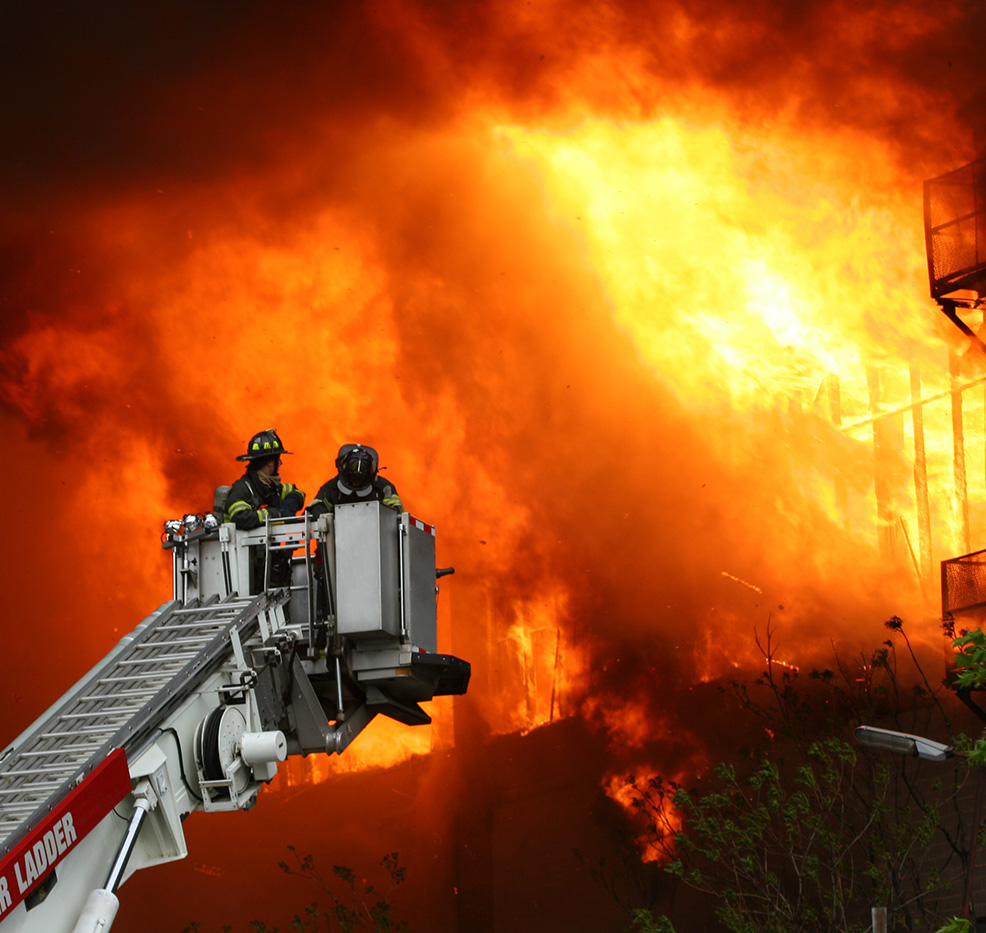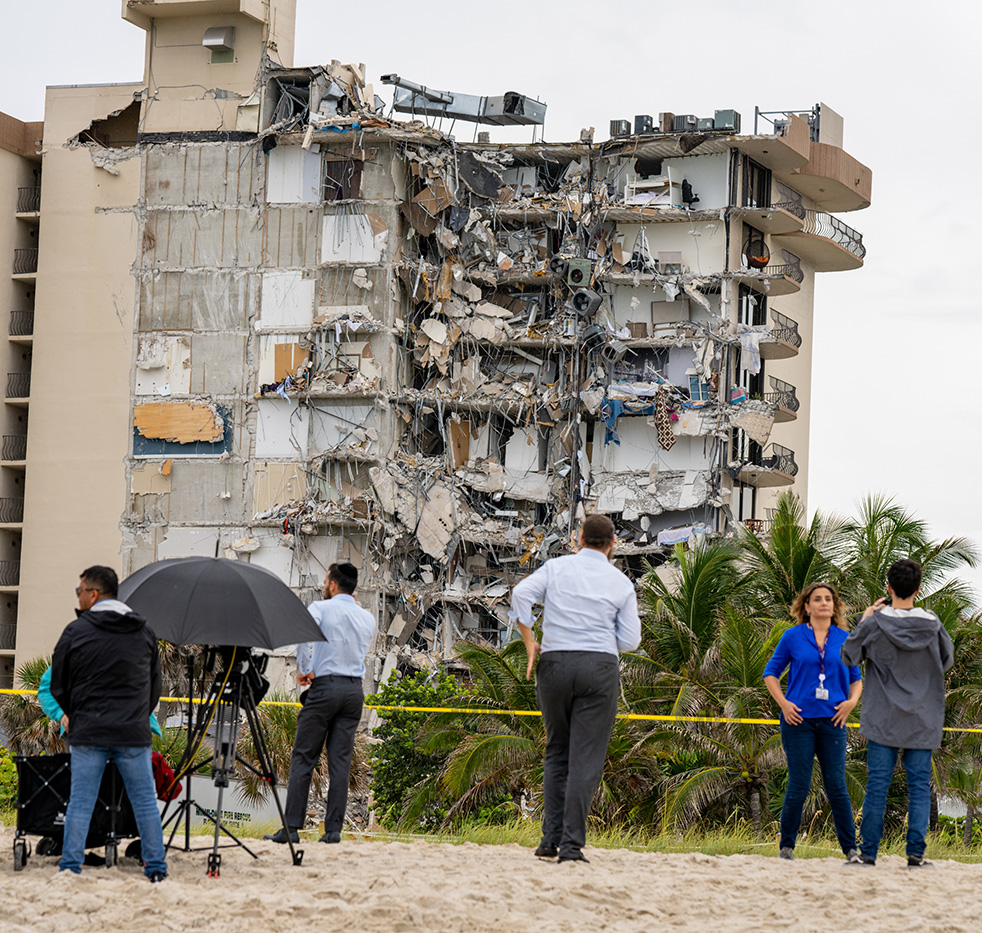{Read in 6 Minutes} Unlike people — who are free to move from place to place — buildings don’t move. Because of this, laws regulating property are often made by local governments, like cities and counties, rather than the state or federal government. Often, those laws respond to high-profile safety related incidents — we’ll call them disasters for short — in an effort to prevent or minimize the chance of a similar disaster from happening again. After such disasters, the NYC Council often passes what are known as Local Laws, which are identified by a number (starting with 1 for the first such law passed in any given year) and the year it was passed (ex: Local Law 1 of 2004). Some of these Local Laws will be all too familiar to property owners and property managers.
In the winter of 1997, a number of partial façade collapses — most notably one that took place on December 15, 1997 when a literal ton of bricks rained down on the sidewalk from the façade of 540 Madison Avenue in Manhattan injuring two pedestrians — led to the passage of Local Law 11 of 1998 (now known as FISP – Façade Inspection Safety Program). Under Local law 11 / FISP, owners of buildings taller than six stories must have exterior walls and other exterior surfaces inspected every five years. The goal of Local law 11 / FISP is to catch failures in the integrity of building facades, and repair those failures before they become a safety hazard.

On December 28, 2017, a 3-year old accidentally turned on a stove-top burner at 2363 Prospect Avenue in The Bronx, killing 13 people and injuring 14 more in what was the deadliest fire in NYC in 25 years. As a result of this fire, and others (such as the Dec. 16, 2016 fire in The Strand Co-op), NYC passed a number of local laws designed not only to prevent the causes of the fire and its ability to spread, but also to raise awareness of how to prevent fires and successfully deal with them. Such laws include the passage of Local Law 111 of 2018 — requiring that all stairwell and hallway doors in certain buildings to be self-closing to help prevent the spread of fire — and the passage of Local Law 117 of 2018 — requiring owners and property managers to send annual notices to tenants advising them that they can request the installation of child-safety stove knob covers on their stoves.
In similar fashion, and in response to other disasters and issues, NYC passed Local Law 1 of 2004 — mandating strict rules regarding the handling of lead paint surfaces in apartments to address the growing concern over lead-paint-related child development issues — and Local Law 152 of 2016, mandating the periodic testing of all exposed gas lines at points of entry and in public spaces in virtually every building in NYC, to help prevent gas-related disasters such as fires and explosions.
Many of these local laws impose heavy burdens on property owners both in terms of onerous compliance costs and voluminous paper records to maintain for sometimes up to 10 years and beyond. Penalties for failing to meet compliance dates can be crushing. For example, failure to file the correct paperwork proving you complied with Local Law 152 may give rise to a $10,000 fine per incident.
The Champlain Towers South Condominium Partial Collapse in Surfside, Florida.

The events of June 24th at the now-infamous Champlain Towers South Condominium have clearly caught the attention of both NYC residents and elected officials. While the exact nature of the cause of the building collapse is currently unknown, the events suggest that the building suffered from internal structural problems. Many want to know – “How do we prevent this from happening in MY building?” It is unlikely that the most diligent façade safety inspection would uncover problems with a building’s internal structural integrity – after all, the façade inspection is designed to ensure against collapses of the façade only. Such inspections are limited to exterior portions of buildings, and do not result in the inspection of interior support structures.
It would not be surprising to see the City Council pass a bill designed to create a “structural inspection” plan for buildings of a certain size. Miami-Dade County – the county where the Champlain Towers South Condominium is located – already has a version of a structural inspection requirement. If NYC wishes to pass such a structural inspection program, it would be well-served to look at Miami’s version of this requirement to learn from it and understand how it failed to prevent this collapse. One thing would be certain however – such a requirement would place increased financial and administrative burdens on property owners who have been financially strained by the COVID-19 pandemic, the eviction moratorium, and the growing amount of rental arrears, not to mention ever-rising property taxes, water bills, and energy costs. An additional costly inspection requirement would add to the financial trauma inflicting NYC property owners. However, such regulations are certain to be considered in NYC and may eventually get codified into a Local Law.
Proactivity is the Best Method of Prevention.
As any good property manager in New York City will tell you, having a proactive management approach to property management is an essential element of preventing disasters, or minimizing the damage caused by unavoidable disasters. Regular and routine property inspections are a key component to maintaining the health of the physical aspects of a building. Getting to know the ins and outs of your building will help you to know when something is wrong. The best property managers know how their buildings sound, smell, feel, and look, and when something starts to go wrong, it creates a change in how the building sounds, smells, feels, and looks. A good property manager also knows how to get the residents in the buildings they manage to help be their eyes and ears at the building by reporting issues to management. Right now, the best property management companies in NYC are not only devising inspection routines designed to help catch structural problems before those problems lead to a Miami-style collapse, but they are also educating the residents in those buildings on how to notice subtle changes in the building, and report those changes to management.
Atlas NYC Property Management is a pioneer in creating proactive approaches to dealing with property needs. Our decades of experience in dealing with the physical needs of properties, our persevering work ethic, and our commitment to the residents for whom we manage buildings puts us in a unique position to be able to catch problems when they are small, and prevent those problems from turning into catastrophes.


Mark
Thanks for your blog, nice to read. Do not stop.